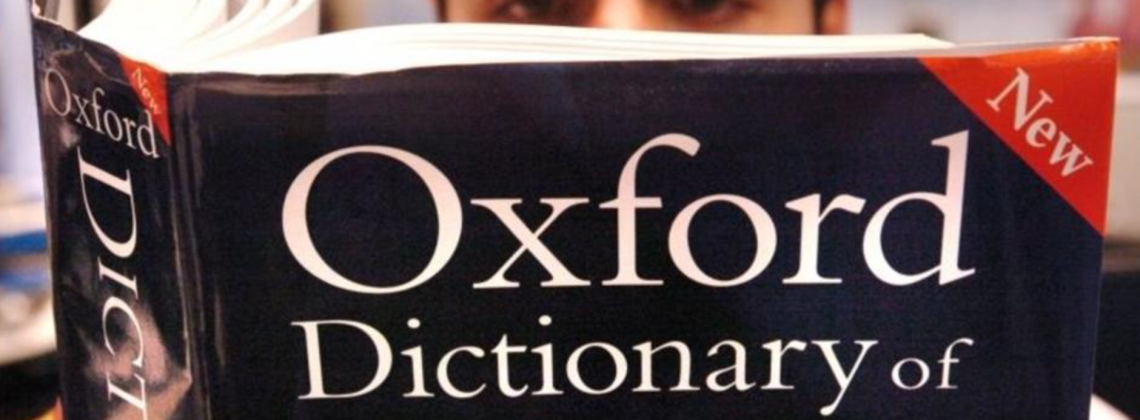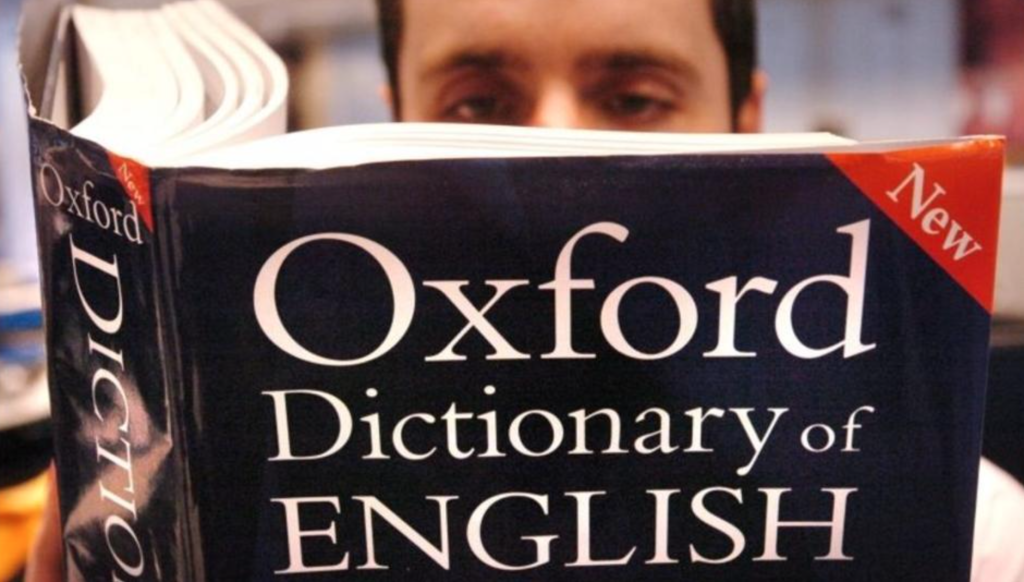

A story at the intersection of the OED and our quest for meaning
The Dictionary People: The Unsung Heroes Who Created the Oxford English Dictionary by Sarah Ogilvie. Knopf, 2023. 384 pp., $30.00
On 20 June 2021, I flew to Britain to take up my position as Fowler Hamilton Visiting Research Fellow at Christ Church, Oxford University. After wearing a mask on a plane for over eight hours and standing in an interminable passport line, I then rode a bus for another hour and forty minutes with the same wretched, moist piece of fabric still pressed against my face. I waited at Christ Church until a good-hearted maintenance man arrived. He took me to a three-bedroom apartment on Banbury Road that the college graciously provided for my use. By this time I was inordinately hungry. I walked to a takeaway place. I sat in my newly occupied flat and ate a beleaguered pizza that had been liberally lathered with margarine. I awoke the next morning, however, in a better mood. Coming outside, I discovered the historical plaque on the building that was now my temporary home. Round and blue in the official manner, it announced: Sir James Murray / Editor of the Oxford English Dictionary / Lived here / 1885-1915.
I tell my students that the fact that a volume is a trade book only tells you who the intended audience is, not how much work the author has done. (OED entry for trade book: “a book published by a commercial publisher and intended for a general readership.”) Sarah Ogilvie’s The Dictionary People: The Unsung Heroes Who Created the Oxford English Dictionary is a book for non-specialists. She is, nevertheless, an expert who has done her work thoroughly.
Because this is a trade book, Ogilvie is allowed to include her visits to Murray haunts, beginning with his burial place. I was most envious, however, when the conventions of the genre enabled her to recount the false research trails she had followed. What if our unfruitful efforts could be salvaged as anecdotage! An entertaining tale found to be untrue is just labeled “apocryphal” and told anyway.
Not that Ogilvie’s material needs embellishing. Murray placed advertisements inviting volunteers to send in quotations that illustrate the use of a word. Around 3000 people took him up on it. His address book enabled Ogilvie to assemble her cast. They are a colorful lot. Delightfully, The Dictionary People has 26 alphabetical chapters.
L is for Lunatics. Three of the four top contributors spent time in a mental asylum. The fourth worked for one. One inmate was Dr. William Chester Minor, who had killed a random passerby in a paranoid, delusional state. Safely confined, he became an avid quotation hunter. The warden even gave Minor an additional cell in which to house his library. His story is so engrossing that Simon Winchester turned it into a bestselling book, The Professor and the Madman—which, in turn, became a film starring Mel Gibson and Sean Penn.
Ogilvie muses that disproportionate numbers of madmen among contributors suggest “a connection between word obsession and madness.” That reminded me of Alexander Cruden, who single-handedly created the first complete concordance of the English Bible. He too was repeatedly institutionalized. Murray observed about one contributor, “Somebody had told me he was considered ‘rather crazy’, but I did not know that this was meant literally.” (An interesting example of how slippery it can be to decipher the meaning behind the words.) The Victorians assumed the causal relationship went in the other direction. One of the contributors had in his official file: “Cause of Insanity: Overwork.” Another contributor was Edith Lanchester. Her family disapproved of her socially inferior lover and had her committed. Her father insisted that Edith had gone insane through “the effects of overstudy.”
W is for Women. Ogilvie writes movingly about Victorian ladies stuck in confined lives as companions and caretakers. Taking part in this great crowdsourcing effort added intellectual interest to their dreary, daily routines. Jemima Brown suffered from “melancholia” (OED: “a pathological state of despondency; severe depression.”) When she was having a bad spell, her sister secretly wrote to Murray and explained that it would help if he could assign Jemima more dictionary work.
The figure that most haunts me is Thomas Austin, Jr. He submitted more slips than anyone else: 165,061. He even moved to Oxford under the misguided assumption that Murray would hire him. Austin learned the hard way that there are scant chances to cross over the gulf between the masses of bookish volunteers and the few people who are somehow allowed to make a living by their learned labors. We still wish it wasn’t so.
Murray wanted to create a dictionary that was descriptive of the way words are actually used. Still, as anyone who has edited a reference work knows, deciding what to include or exclude is a maddening question that somehow seems to never get definitively (as it were) answered. My high school English teacher insisted that “weatherwise” was not a real word—some unauthorized persons had just started shoving a suffix on a genuine word. New “words” can be generated endlessly this way. Dictionarywise?
The original OED had over a hundred words ending in “mancy”, including cephaleonomancy (“divination by placing a donkey’s head on coals.”) Alas, Murray was persuaded that physicians were apt to stick the suffix “itis” on most any word. Therefore, he did not include appendicitis. In 1902, King Edward VII’s coronation was postponed because he had an attack of appendicitis, and people were annoyed when they wanted to figure out what it meant but couldn’t find the word in the dictionary.
Then there were the mischievous contributors. Some hunted for rude quotations with which to illustrate ordinary words. To the pure all things are pure, however. The Quaker Mary Vernon sent in this example for the word ravishing: “Oh what a ravishing comfort is the fellowship of the saints.” My heart particularly warms to the antiquarian Henry Phillips who concentrated his efforts on trying to get quotations from his own books into the dictionary.
The first edition of the OED, published in 1928, took seventy years to complete. It was in ten volumes and had entries on 414,800 words. The great were invited to a grand dinner to celebrate. The prime minister, Stanley Baldwin, quipped that he knew you were not supposed to admit this at a book launch, but he would confess that he had not yet read it. J. R. R. Tolkien, who had been a paid editorial assistant, was also there. The real heroes, however, were the unsung ones who had voluntarily sent in five million quotations.
Timothy Larsen teaches at Wheaton College and is an Honorary Fellow at Edinburgh University. He is the author of John Stuart Mill: A Secular Life and the editor of The Oxford Handbook of Christmas. He is President Elect of the American Society of Church History.